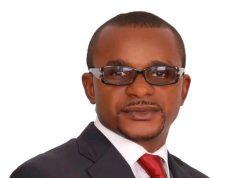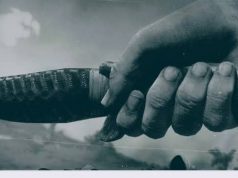President Muhammadu Buhari means different things to different people. To some, he is a religious bigot and an ethnic chauvinist while others see him as an incorruptible, incorrigible and sincere leader who means well for the country. No matter what side of the divide you stand on, Nigerians should remember that while opinions are free and they are entitled to hold whatever opinion they like about the President, the facts about Buhari are sacred and as such are not subject to debate.
Buhari joined the Nigerian Army in 1961, fought in the Nigerian civil war (1967-1970) and held various positions in the army and in politics before he eventually emerged as Nigeria’s Military Head of State in 1983. He was at one time or the other Governor of the North-Eastern State, Governor of Borno State and Federal Commissioner for Petroleum and Natural Resources among many other positions.
During Buhari’s tenure as Petroleum Minister, the government invested in pipelines and petroleum storage infrastructure. The government built about 21 petroleum storage depots all over the country from Lagos to Maiduguri and from Calabar to Gusau. He also constructed a pipeline network that connected Bonny Terminal and the Port Harcourt Refinery to the depots. In addition to that, he signed the contract for the construction of a refinery in Kaduna and an oil pipeline that will connect the Escravos oil terminal to Warri Refinery and the then proposed Kaduna Refinery.
In 1983, when Chadian forces invaded Nigeria in Borno State, Buhari led the military forces that chased them out of the country and even went as far as crossing into Chadian territory in spite of an order given by President Shehu Shagari to withdraw.
As Nigeria’s military Head of State from 1983 to 1985, Buhari jailed about 500 politicians, officials and businessmen for corruption, bribery and embezzlement of state funds. He launched the War Against Indiscipline (WAI) to address the perceived lack of public morality and civic responsibility in the Nigerian society. One of the derivatives of WAI was the law which clearly states that any student over the age of 17 caught cheating in an exam would get 21 years in prison.
After his overthrow in a palace coup led by his Chief of Army Staff, General Ibrahim Badamasi Babangida in 1985, he was jailed in a guarded bungalow in Benin City and was eventually released in 1988.
Thereafter, he went into farming and also emerged as the first Chairman of the Katsina Foundation that was founded to encourage social and economic development in Katsina State. Buhari served as Chairman of the Petroleum Trust Fund (PTF), a body created by the government of General Sani Abacha, and funded from the revenue generated by the increase in prices of petroleum products to pursue developmental projects around the country. A 1998 report in the New African magazine praised the PTF under Buhari for it’s transparency, calling it “a rare African success story”
Buhari joined politics in 2002 and contested for the Presidency under the platform of the All Nigerian Peoples Party (ANPP) against former president Olusegun Obasanjo, the following year. He went on to contest in the 2007 elections, 2011 elections and 2015 elections against Umaru Yar’Adua and Goodluck Jonathan emerging as first runner-ups in 2007 and 2011 and eventually clinching the coveted prize in 2015.
Before his death, Nigeria’s former Senate President, Dr Chuba Okadigbo, who was also Buhari’s running mate in the 2003 elections, praised Buhari as one of the pillars of democracy in Nigeria and said categorically that Buhari foiled Obasanjo’s plan to make Nigeria a one-party state through his entry into Nigerian politics on the side of the opposition.
As Nigeria’s President from 2015 till date, Buhari has had an above average performance in office considering the rot and decay in all sectors of the economy which he inherited from the Jonathan administration whose party, the PDP, had been in power for 16 years. He has laid the foundation for a new Nigeria through investment in critical infrastructure like railways, airports, roads, highways and bridges. Prices of foodstuffs have fallen nationwide due to Buhari’s massive investment in agriculture in the last two years. Public electricity supply to households in many parts of Lagos, Ogun and Oyo states have increased to as high as twenty hours a day.
The anti-corruption war has led to the recovery of trillions of naira which has been ploughed back into the economy pulling Nigeria officially out of recession and expanding the economy. Little wonder, that Buhari’s N8 trillion naira 2018 budget is the largest ever in the history of Nigeria. He has given two bail-out funds even when he was not obligated to do so and three Paris Club Refunds totaling about N1trillion naira to the 36 state governors to enable them offset workers salaries and arrears due to his love for Nigerian workers.
That the governors have chosen to divert the money for other purposes other than that for which the money was meant cannot be blamed on Buhari but the governors. Buhari promised to focus on three major areas if he was elected as President in 2015-economy, security and corruption. It is an undisputable fact that he has performed creditably well in these three areas though he can still do better in the next two years.
As we celebrate the birthday of a great leader, a patriot and a man of destiny, I join millions of Nigerians in wishing the president of the most populous black nation in the world a happy birthday, long life and prosperity.




